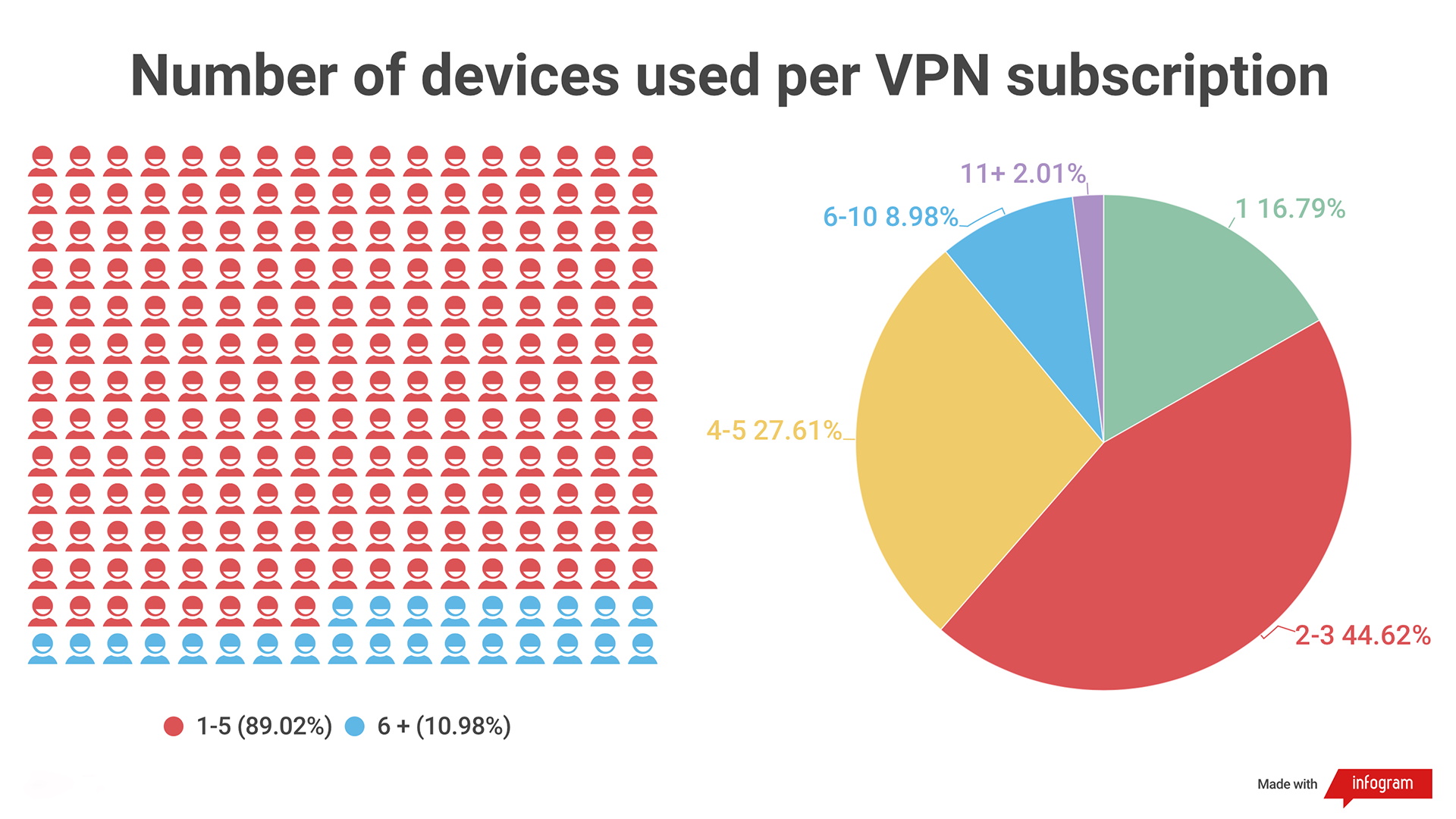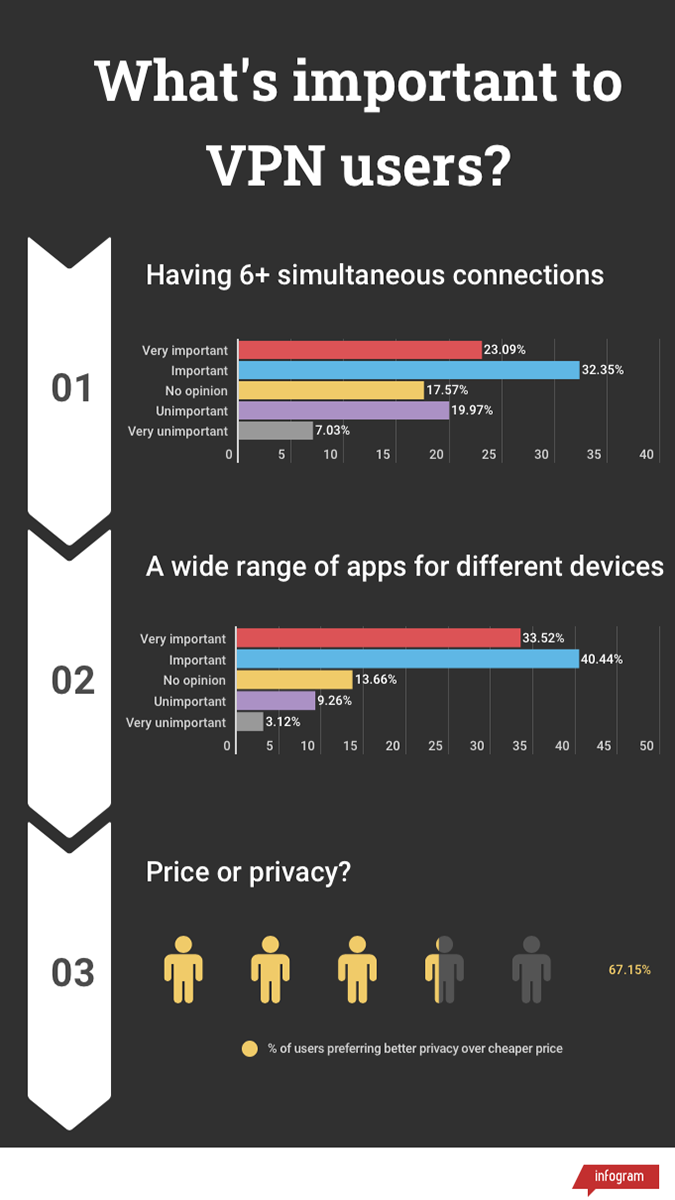When looking for the best VPN services on the market, you've surely come across several characteristics that are supposed to make the service worth your money.
Beside top-notch security features, a strict no-log policy and strong encryption, providers boast about the ability to use their VPN on many devices at once as a great advantage. In the past few years, device allowances have grown, with some top services even offering unlimited simultaneous connections to their users.
The bonus to the user, they say, is that you'll be able to use a single VPN subscription for all your tech - including laptops, PCs, smartphones, TV streamers, routers and more.
However, data gathered by TechRadar shows how this feature might not be as useful as you think. The vast majority of VPN users simply don't use all their simultaneous connections.

Superfluous simultaneous connections
We asked over 2,400 TechRadar readers how they use their VPNs and discovered that only 11% use their VPN service on more than five individual devices. While roughly 3 out of 5 respondents use theirs on just three or fewer different devices.
However, when asked to rate how important having plenty of simultaneous connections was when choosing a provider, over half responded with 'important' or 'very important'.
So, while the vast majority of users don't actually use their VPN on the maximum number of devices, having more on offer still adds value when people are choosing their VPN provider.
While unlimited simultaneous connections appear to be somewhat superfluous, almost 75% of VPN subscribers agree on the importance of having a good range of apps available for different operating system - whether this is for your Android VPN or iPhone VPN, Windows, macOS, Linux, smart TV, or gaming console.
Another eye-catching finding concerns the price of a product, with almost 70% of respondents telling us that they would be happy to pay more if it meant that they were assured a higher level of privacy.

VPN connection allowances at glance
Among the top VPN services around, there's a lot of difference when it comes to how many connections are offered.
For example, our top-rated provider ExpressVPN has a limit of five devices. This is the lowest among our favorite providers, on par with Hotspot Shield and TunnelBear.
NordVPN is slightly more generous, offering six, while Proton VPN and Private Internet access (PIA) raise the bar at 10. And Surfshark and IPVanish go the whole hog, with their users having no limit on the maximum devices they can connect at the same time.
Before these results, we would've thought that consumers greatly valued this feature when choosing their product. Similarly, we thought that a service offering fewer simultaneous connections could suffer against more generous competitors - indeed, it's something that we've frequently criticized ExpressVPN and NordVPN for in the past.
But, apparently not. Time and time again, quality and functionality appear to be preferred over quantity.
While many providers seem to keep investing to enlarge their maximum device allowance to stay ahead of the competition, it looks like it would be better to focus on more pressing elements instead. Offering a more comprehensive product - like a VPN and antivirus bundle, for example - is just one of the ways to meet the needs of an ever-changing cybersecurity world.
Source: TechRadar